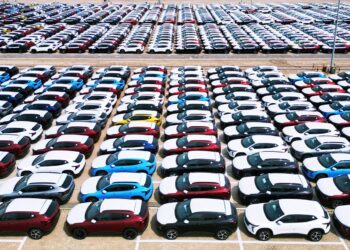Thailand’s automobile industry faces challenges from high household debt and a shift to electric vehicles, resulting in significant production cuts, job losses, and a drop in domestic sales to a 14-year low.
Key takeaways
- A 20.6% production decline and 14-year low in domestic sales due to high household debt and EV shift.
- Companies like Techno-Metal are at 40% capacity, affecting over 700,000 workers in traditional auto parts.
- Despite challenges, $1.44 billion in Chinese EV investments could reshape Thailand’s economy.
Thailand’s $53 billion automobile industry faces significant challenges due to rising household debt and a transition to electric vehicles (EVs). As a result, production dropped 20.6% year-on-year in August, with domestic sales at a 14-year low.
Companies like Techno-Metal, which supplies major automakers, are operates at just 40% capacity, leading to workforce reductions.
The situation is critical, especially for traditional auto parts companies employing over 700,000 workers. While Chinese investments in EVs total over $1.44 billion, they don’t compensate for the broader sector losses, necessitating keen observation of economic conditions influencing investor sentiment.
This decline, particularly in the pick-up truck segment, reflects global EV adoption trends. While challenges abound, there are also opportunities for foreign investments in EV production that could reshape Thailand’s economic landscape and international trade in the future.
Source : Thailand’s Auto Industry Faces Major Hurdles Amid Debt And EV Shift




